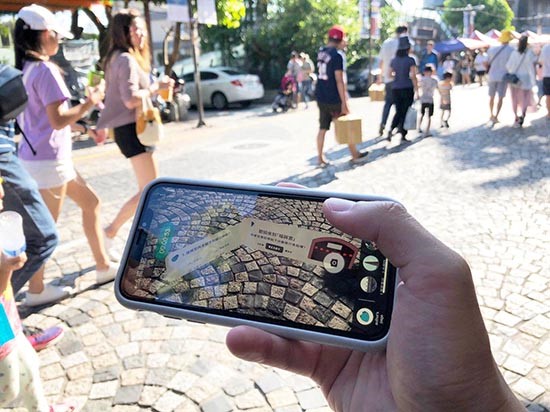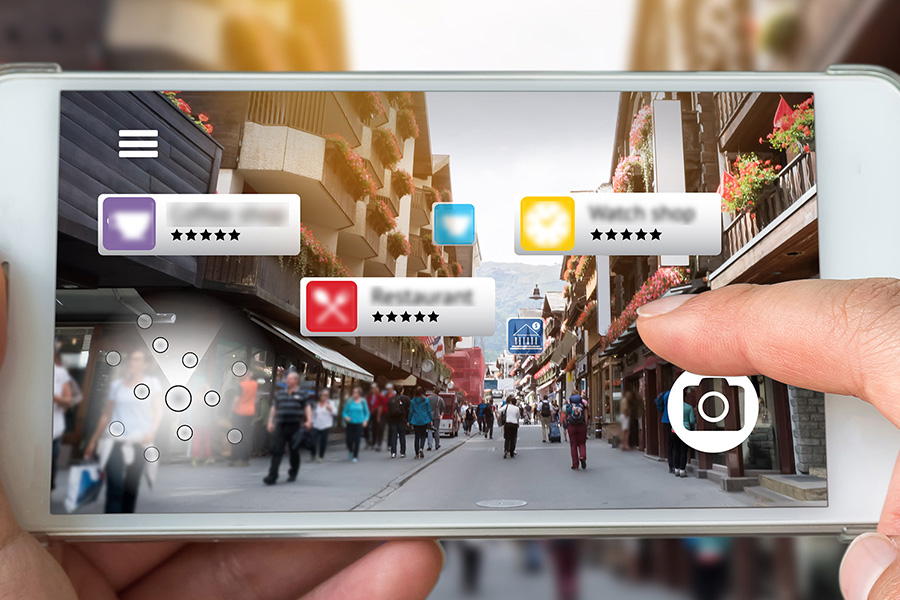(This report is provided by Dr. Chang-Hwa Wang’s research team in the Department of Graphic Arts and Communications)
Context-aware location-based games are able to integrate learners into mixed reality situations and increase the sense of presence in local culture learning, which make learning joyful and allow learners to be presented in the real local cultural environments. For the past several years, our research team has conducted in-depth studies on the crucial elements of context-aware location-based game learning, the game mechanism, and the individual characteristics of learners' presence and perception. We have confirmed the relationships between these individual characteristics and the effectiveness of location-based game learning. However, no previous research has addressed the issue of how to design and develop a fun and effective adaptive game.
We first comprehensively reviewed related literature to identify the key factors that may influence the success of developing location-based games, and then invited experts in the field to form an advisory group to collect data for further fuzzy delphi analyses. A unique network analysis program were employed to identify and rank the importance of 3 criteria and15 key factors for successful development of location-based games. We also found that the most important criterion for a successful game is the inclusion of cultural essence in the games, which is consequently affected by learners' prior knowledge, levels of challenges, and cultural narratives. When it comes back to the fundamentals of learning, the content of learning is as important as the design of other teaching strategies.
Location-based gaming is a type of mixed-reality gaming with mobile devices using context-aware technology. The mixed-reality context allows players to travel between the real world with their feet on the ground and the virtual context of the mobile device.. The use of local games to supplement the learning of specific content is often called location-based game learning. Many studies have shown that local culture learning is a very suitable for using location-based games as the insturctional strategy.
Regarding location-based game learning, the research team has conducted a series of theoretical model development, design and production of local culture game-based learning, and empirical research on factors affecting learning effectiveness based on the theoretical and empirical findings of pervasive games, mixed reality, and game-based learning, and has achieved promising results. The local cultural themes in these studies including Li Tianlu's puppet show, Taiwan's railway, Yingge ceramics, and Tamsui historical sites. However, we found that few studies have focused on the key factors for developing a successful location-based learning game. This study invited a number of scholars in the field, as well as game-based learning practitioners and users to address this issue. A Fuzzy Delphi Method (FDM) study was conducted to try to screen the most influential key factors and rank them by the Analytic Network Process (ANP). The results yielded 15 key factors for the successful development of local games in three categories, of which cultural inclusion was the most important. Other important influential elements included the consideration of learners' prior knowledge, the challenge of the game, and the presentation of local cultural content. These findings dipicts the key success factors, and there is a clear sequence that can be used as a reference for the subsequent development of location-based game learning for instructional designers. In the past, most of the research on location-based game learning focused on the development of game systems and learning content, whereas few have focused on instructional designers. Therefore, the uniqueness, innovation, and practicality of this study can be highlighted.

Figure 1: The mixed reality site of Yingge ceramic culture with localization-based game learning
While most previous studies on educational technology were conducted using experimental methods, this study integrated the FDM and ANP as the main research methods. The initial factors were first established by literature review, and then the first stage (FDM) and the second stage (ANP) questionnaires were established by a rigorous procedure of pairwise comparison matrix and super matrix, and then the weights of key factors were analyzed. Such a procedure has been used more often in the past for business or management model establishment. It is the first time that this procedure has been applied to the study of educational technology, and has gained initial recognition.
In recent years, digital mobile technology has been advancing and changing rapidly, and the hybrid space has become a hot topic of discussion, such as the concept of the metaverse. It is expected that this study will inspire more research on the improvement of the effectiveness of location-based games at the instructional design stage, thus resulting more complete concepts of virtual-real hybrid space.
Reference:https://bera-ournals.onlinelibrary.wiley.com/doi/epdf/10.1111/bjet.12926











